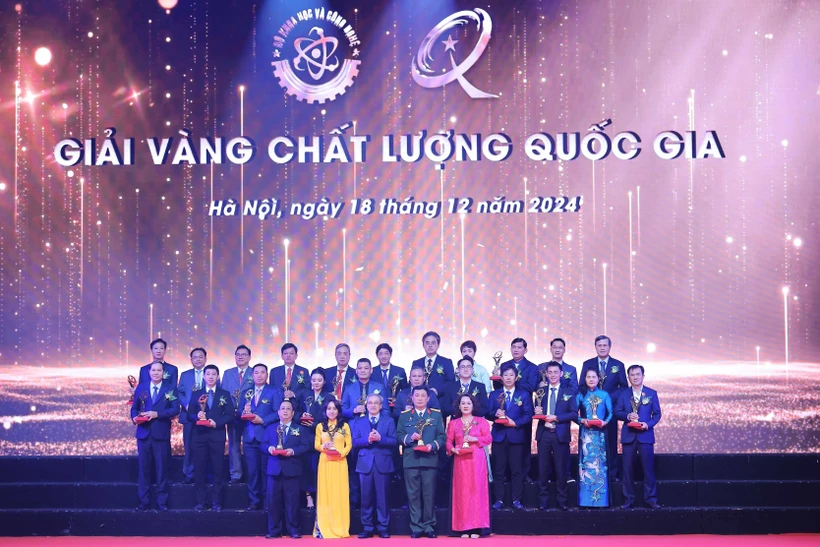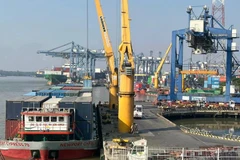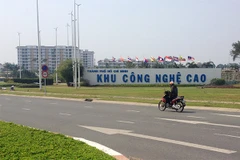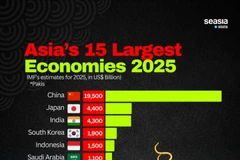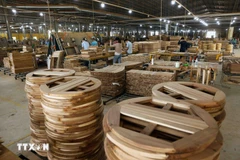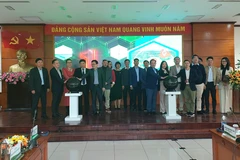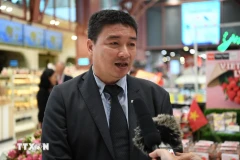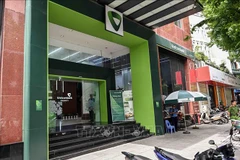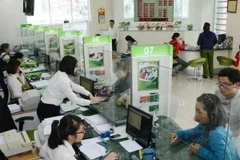Hanoi (VNA) – An awards ceremony for the Vietnam National Quality Awards and Asia-Pacific Awards for 2021-2023 was held in Hanoi on December 18, announcing 133 winners of the prestigious national awards and two others of the regional awards.
Particularly, TH Milk JSC and Khanh Hoa Salanganes Nest Company received the highest Asia-Pacific International Quality Awards for 2021 in the large manufacturing category.In 2021, 61 organisations and businesses received the award, including 19 that achieved the golden prize. In 2022, 49 organisations and businesses were honoured, with 22 earning the golden prize.
In 2023, 23 organisations and businesses were awarded, including 11 golden prizes.
To date, 2,163 organisations and enterprises have been recognised with the National Quality Awards.The award-winning enterprises collectively achieved estimated revenues exceeding 500 trillion VND (19.6 billion USD), profits surpassing 36 trillion VND, and contributed over 32 trillion VND to the State budget, while creating jobs for nearly 170,000 workers.
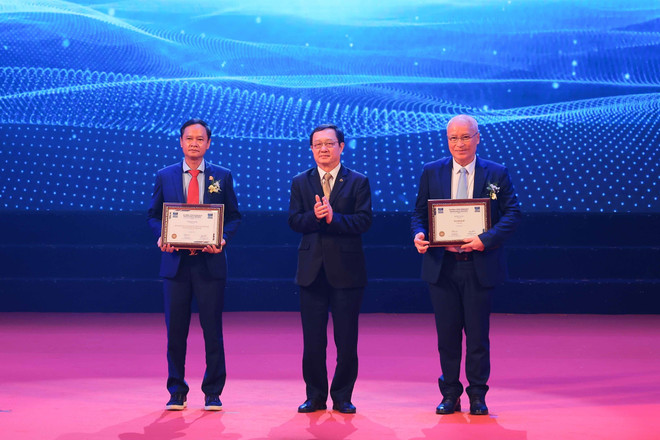
Speaking at the event, Minister of Science and Technology (MOST) Huynh Thanh Dat highlighted global challenges, including epidemics, inflation, and supply chain disruptions, which have pressured businesses to innovate and adapt. Despite difficulties, many Vietnamese enterprises showed resilience, maintaining jobs and growth.
The award winners exemplify success through productivity tools, innovation, and governance improvements, contributing to Vietnam’s economic recovery.The minister emphasised expanding the award's reach to inspire more businesses to pursue excellence.
Deputy Minister of Science and Technology Le Xuan Dinh, who is also Chairman of the National Quality Award Council, said that the award is part of the Asia-Pacific International Quality Awards system (Global Performance Excellence Award - GPEA) under the Asia Pacific Quality Organisation (APQO).
Over the past 28 years, the awards have gained recognition for honouring outstanding businesses that excel in governance and sustainable development.
These awards reflect Vietnam’s growing competitiveness and commitment to international standards through optimal management improvements and sustainable growth efforts, have gained significant recognition and credibility among organisations, businesses, regulatory agencies, and consumers./.
